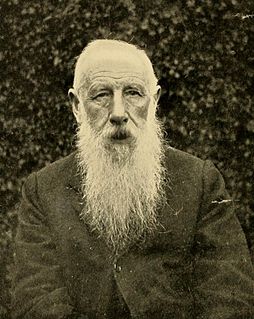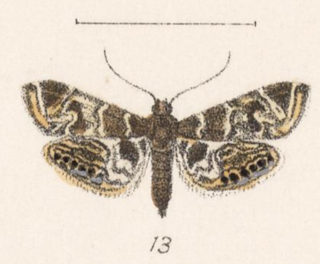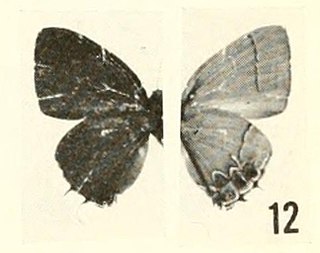George Charles Champion was an English entomologist specialising in the study of beetles. He was the eldest son of George Champion.

David Sharp FRS was an English physician and entomologist who worked mainly on Coleoptera. He was among the most prolific publishers in the history of entomology with more than 250 papers that included seven major revisions and reviews and a highly influential work on the structure and modifications of the male genital structures among the beetle families. He was the editor of the Zoological Record for three decades.

William Lucas Distant was an English entomologist.

Findley's myotis is a species of vesper bat. It is found only on the Tres Marías Islands off the west coast of Mexico.
Dalbergia glomerata is a species of legume in the family Fabaceae. It is found only in Mexico.

Peter Cameron was an English amateur entomologist who specialised in Hymenoptera.

Herbert Huntingdon Smith or Herbert Huntington Smith was an American naturalist and amateur conchologist who worked on the flora and fauna of Brazil. He wrote Brazil, the Amazons and the coast and Do Rio de Janeiro á Cuyabá: Notas de um naturalista (1922).
Wimmeria mexicana is a large shrub or small tree, often reaching 8 metres (26 ft) in height, that is common in the Southeastern United States and in regions of Mexico, including the states of Oaxaca, Chihuahua, and central to eastern Sonora. It is commonly called papelío and algodoncillo.

The Biologia Centrali-Americana is an encyclopedia of the natural history of Mexico and Central America, privately issued in 215 parts from 1879 to 1915 by the editors Frederick DuCane Godman and Osbert Salvin, of the British Museum in London. It was begun by Alfred Maudslay publishing his first long-form description of the Archaeology at Chichen Itza.

Acanalonia is a genus of planthopper in the fulgorid family Acanaloniidae.

Usingeriessa onyxalis is a moth of the family Crambidae. It is native to southern Texas, Mexico and Central America. It is an introduced species in Hawaii.
Adiantum alarconianum is a South American maidenhair fern. First scientifically collected in the early 1800s in Ecuador, it is found in neighboring parts of Peru as well. Its iridescent stem scales help to differentiate it from other related ferns.

Parevander xanthomelas is a species of beetle in the family Cerambycidae. It was described by Félix Édouard Guérin-Méneville in 1844, and has been classified in the genus Parevander since the circumscription of that genus by Per Olof Christopher Aurivillius in 1912.

The Anypotactini are a Neotropical weevil tribe in the subfamily Entiminae. It includes 81 described species.

Entimini is a Neotropical weevil tribe in the subfamily Entiminae that includes 46 described species.
Heliopsis procumbens is a Mexican species of flowering plant in the sunflower family. It is native to central Mexico from Jalisco and Michoacán east to Veracruz.

Calycopis pisis, the pisis groundstreak, is a butterfly found in several countries in Latin America.
Myochrous is a genus of leaf beetles in the subfamily Eumolpinae. It is known from North, Central and South America. There are over 50 described species in Myochrous. The generic name is a combination of the Ancient Greek words μῦς (mouse) and χρῶμα (color).
Metachroma is a genus of leaf beetles in the subfamily Eumolpinae. It is distributed from Ontario, Canada to Mendoza, Argentina, including the Antilles. It has also been suggested that the genus extends to the Pacific Islands, though this is not confirmed. There are about 140 described species in Metachroma, 40 of which are found north of Mexico. An extinct species is also known from the Eocene of the United States.

Compsus auricephalus, the golden-headed weevil, is a species of broad-nosed weevil in the beetle family Curculionidae. It is native and fairly widespread across the southern U.S.A., extending through Central America in Guatemala and Mexico.













